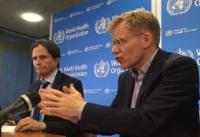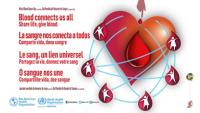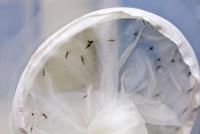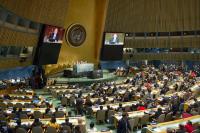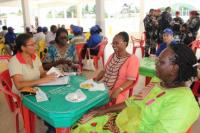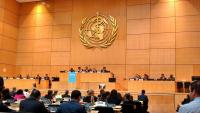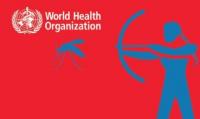You are here
News
-
06/15/2016 - The third meeting of the Emergency Committee (EC) convened by the Director-General under the International Health Regulations (2005) (IHR 2005) regarding microcephaly, other neurological disorders and Zika virus was held by teleconference on 14 June 2016. In addition to providing views to the Director-General on whether the event continued to constitute a Public Health Emergency of International Concern (PHEIC), the Committee was asked to consider the potential risks of Zika transmission for mass gatherings, including the Olympic and Paralympic Games scheduled for August and September 2016, respectively, in Rio de Janeiro, Brazil.
-
06/15/2016 - “The access to medicines is not a problem of developing countries only, but of the whole world. It is a battle of trade versus health". The declaration of the Vice President for Production and Innovation at Fiocruz and member of the United Nations High-Level Panel on Access to Medicines, Jorge Bermudez, gives the gist of the two days of debates in the meeting "Strategies to improve the access to biological products: lessons learned and challenges”, which ended last Thursday (9) at ISAGS’ headquarters.
-
06/13/2016 - This year's World Blood Donor Day, June 14, features the slogan "Share life, give blood" and focuses on how "blood connects us all." The 2016 campaign thanks all blood donors and highlights the solidarity and connection between donors and patients.
-
06/13/2016 - Support for countries that are fighting the Zika virus and the verification and monitoring of activities of the International Atomic Energy Agency (IAEA) in Iran were among the key issues highlighted by Director General Yukiya Amano to the agency’s Board of Governors in Vienna today.
-
06/09/2016 - At a high-level meeting on ending AIDS that opened at the United Nations General Assembly today, Member States adopted a new political declaration that includes a set of time-bound targets to fast-track the pace of progress towards combating the worldwide scourge of HIV and AIDS over the next five years and end the epidemic as a public health threat by 2030.
-
06/07/2016 - The United Nations Office for South-South Cooperation launched a publication to highlight good practices from Southern nations that are relevant to the implementation of the Sustainable Development Goals. Called “Good Practices in South-South and Triangular Cooperation for sustainable Development”, the publication presents initiatives in which developing countries turn to one another to address common challenges, and the WFP Centre of Excellence against Hunger is one of the experiences featured.
-
06/03/2016 - After a week of extensive debates, the 69th Session of the World Health Assembly ended on May 28, in Geneva (Switzerland). The last day of discussions included topics that had been part of the agenda of the WHO for more than four years, such as the Framework of Engagement with Non-state Actors (FENSA), whose resolution was headed by Argentina.
-
05/31/2016 - Based on current assessment, cancelling or changing the location of the 2016 Olympics will not significantly alter the international spread of Zika virus. Brazil is 1 of almost 60 countries and territories which to date report continuing transmission of Zika by mosquitoes. People continue to travel between these countries and territories for a variety of reasons. The best way to reduce risk of disease is to follow public health travel advice.
-
05/24/2016 - Dramatic gains in life expectancy have been made globally since 2000, but major inequalities persist within and among countries, according to this year’s “World Health Statistics: Monitoring Health for the SDGs”. Life expectancy increased by 5 years between 2000 and 2015, the fastest increase since the 1960s. Those gains reverse declines during the 1990s, when life expectancy fell in Africa because of the AIDS epidemic and in Eastern Europe following the collapse of the Soviet Union. The increase was greatest in the African Region of WHO where life expectancy increased by 9.4 years to 60 years, driven mainly by improvements in child survival, progress in malaria control and expanded access to antiretrovirals for treatment of HIV.
-
05/19/2016 - "Calling all superheroes. This is not a drill. Our communities have been invaded by dangerous mosquitoes and we need help." With those words, Cartoon Network Latin America is launching "Mission Zika," an educational campaign to raise awareness about Zika in Latin America, using Public Service Announcements that raise awareness about Zika and means of prevention.

